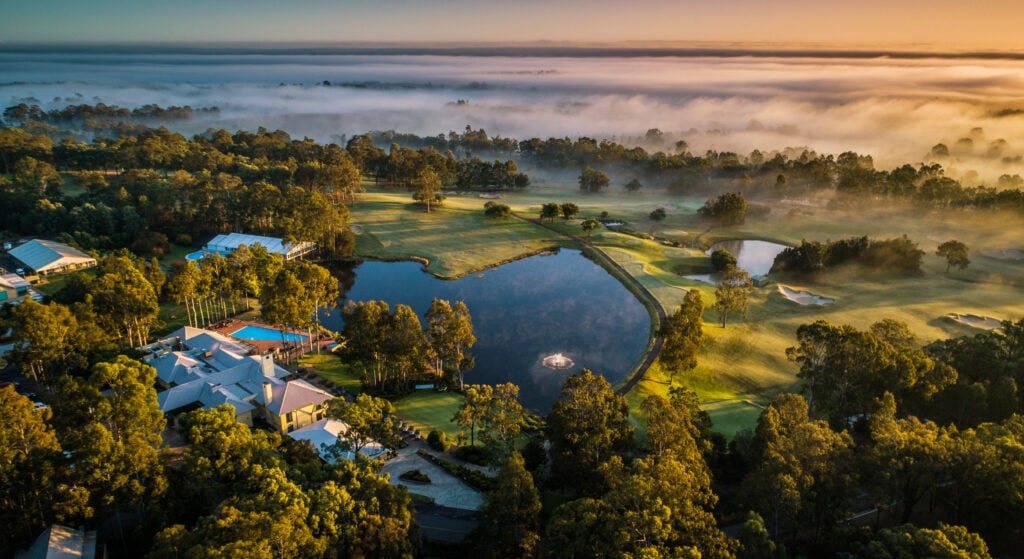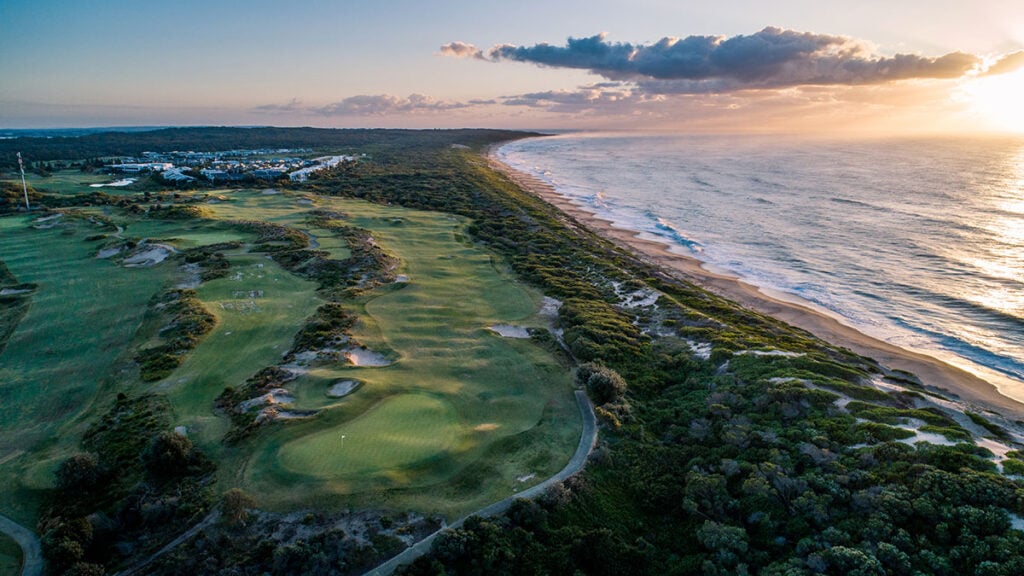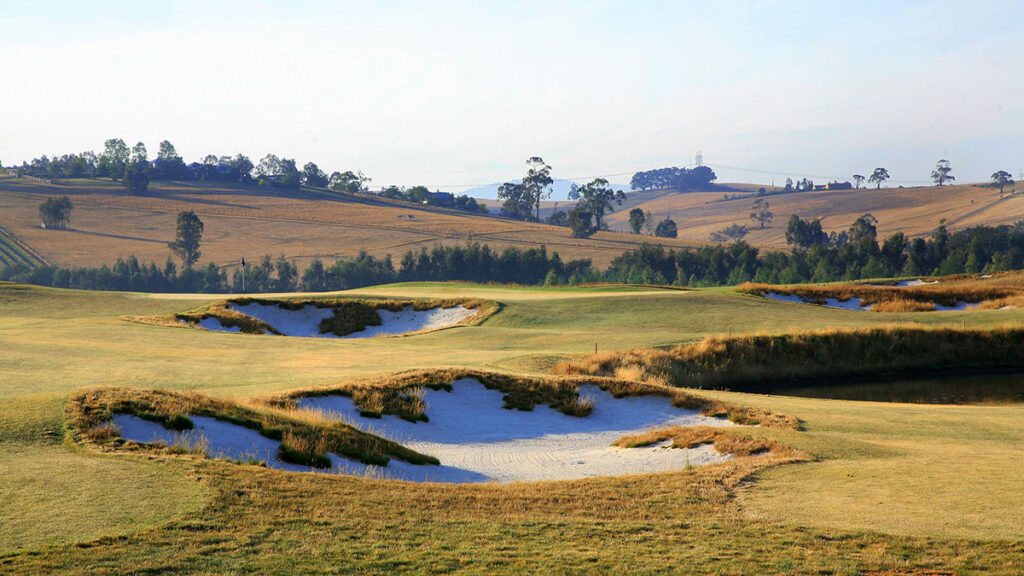Celine Boutier leads a group of talented players who know how to scramble
Photographs by Dom Furore
When examining just how good the golf is on the LPGA Tour, it’s likely you’ll notice how far Maria Fassi drives the ball or how many birdies Atthaya Thitikul makes in a round. On closer inspection, however, there’s also a lot of skill being demonstrated around the greens. To put it one way, many of these women wield wedges and putters with the dexterity of a major-championship trophy engraver.
With that in mind, Golf Digest sought to identify and honour the best of the best in various short-game skills on the LPGA Tour. To accomplish this, we sifted through scores of statistics, including new ones provided by KPMG Performance Insights, as well as enlisting the opinions of dozens of pros and their swing coaches (polled at tournaments late last year). The result is honourees in six categories, led by six-time LPGA Tour winner Celine Boutier, plus honourable mentions. (It was a challenge to pick winners in many of these categories.)
From distance wedges to putting, from bunker play to touch, the following are the LPGA’s elite scramblers and what you can learn from them.
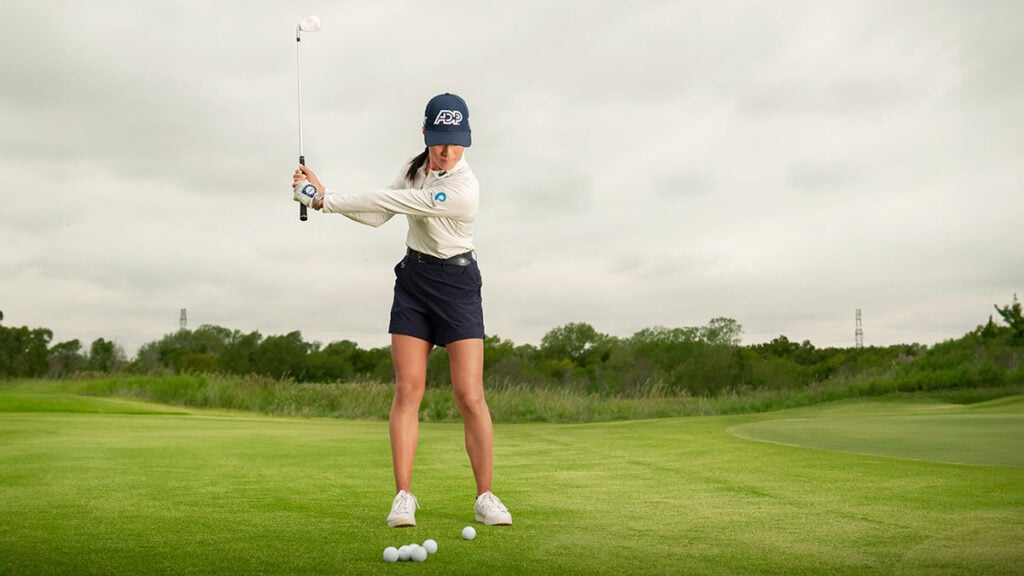
Best Overall: Celine Boutier
During the 2023 season, Boutier won four times, including an impressive six-shot victory in the Amundi Evian Championship, her first major. What set her year apart? Among many statistical improvements, she jumped 129 spots in the LPGA stat of strokes gained/around the green. She also led the tour in scrambling – getting up and down better than two out three attempts – and ranked fifth in sand saves.
“My short game really took off when I began working with my current coach,” Boutier says of Australia’s Cameron McCormick, who also works with Jordan Spieth. “Cameron really helped improve my ability to read the lie and select the shot based on how the ball is sitting. We also focused on smoothing out my tempo, as I can get a little quick in my backswing.
“But by far the biggest adjustment in my short-game transformation was honing in my distance control – and it’s something amateurs should focus on.”
As you might expect, Boutier spends a lot of time on her short game, but she says the average amateur can improve in a lot less time if they adjust the way they practise. The key is to continually vary the goal. It can be selecting a new target from one ball to the next or trying to execute a different type of shot to the same target. The variance builds touch, especially for golfers who can’t get to the short-game area often.
“I’ll place tees or balls on the green to serve as targets or landing zones and then I try to land my shots at each target. I like this drill because I can get creative and land balls in the same spot with different trajectories to see how they react on the greens. Practising this way gives me a lot of insight into how to play from various spots on the course.”
Honourable mentions: Cheyenne Knight, Minjee Lee, Lydia Ko
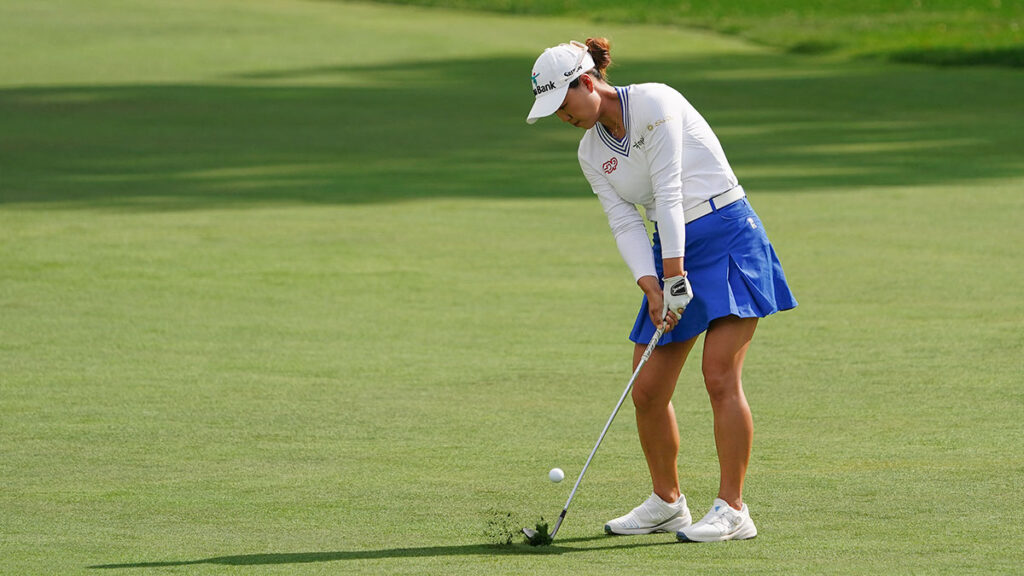
Best Distance Wedges: Minjee Lee
Minjee Lee sat at the top of the LPGA Tour in strokes gained/approach in each
of the past two seasons, and is perennially among the best in the greens-in-regulation stat.
“I focus on maintaining a quiet lower half,” Lee says of her ability to consistently hit solid wedge shots.
“That’s about as technical as I get.”
With distance wedges, Lee says she likes to put more pressure in her lead leg than she would for a full iron shot, and that pressure increases as she gets closer to the green. The reason? Weight shift isn’t nearly as important in shorter shots as it is when you’re swinging from longer distances. The priority is making clean contact to control distance.
Her tip for you? “For consistency, use lower-lofted clubs into greens and shorten your swing,” she says. Also, make sure the clubface is square at impact. You’ll control direction, spin and trajectory much better.
Honourable mention: Jin Young Ko
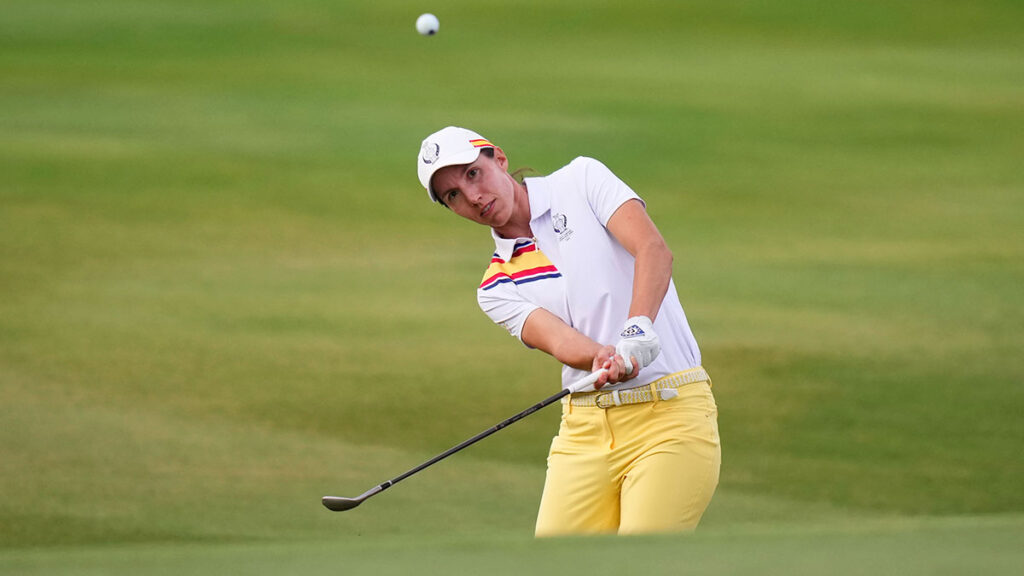
Best Touch: Carlota Ciganda
Carlota Ciganda’s touch is often mentioned by other tour players and caddies as being in the same league as that of another famous Spaniard, the late Seve Ballesteros. Although humbled by the comparison, she says she’s more of a student than a professor of his technique, along with those of other great Spanish players.
“I’ve watched a lot of videos of Seve, Olazabal, Sergio and Rahm,” Ciganda says. “Like them, once I see the lie and the green, the shot I want to hit comes to me. I follow my instincts.”
Natural talent aside, Ciganda says you can’t truly tap into feel or touch without first having solid mechanics, and that’s where amateur golfers should start: “Having the technique clear in your mind is what gives you confidence – especially under pressure.”
Her basic technique is simple to copy, she says: start the club back mainly with your arms and hands, but swing through with a rotation of the body. The hands should remain fairly inactive in the through-swing until this motion becomes easy to repeat – then you can experiment with some hand-and-wrist action to alter what the ball does.
Honourable mentions: Ashleigh Buhai, Gabby Lopez, Leona Maguire Patty Tavatanikit, Ruoning (Ronnie) Yin.
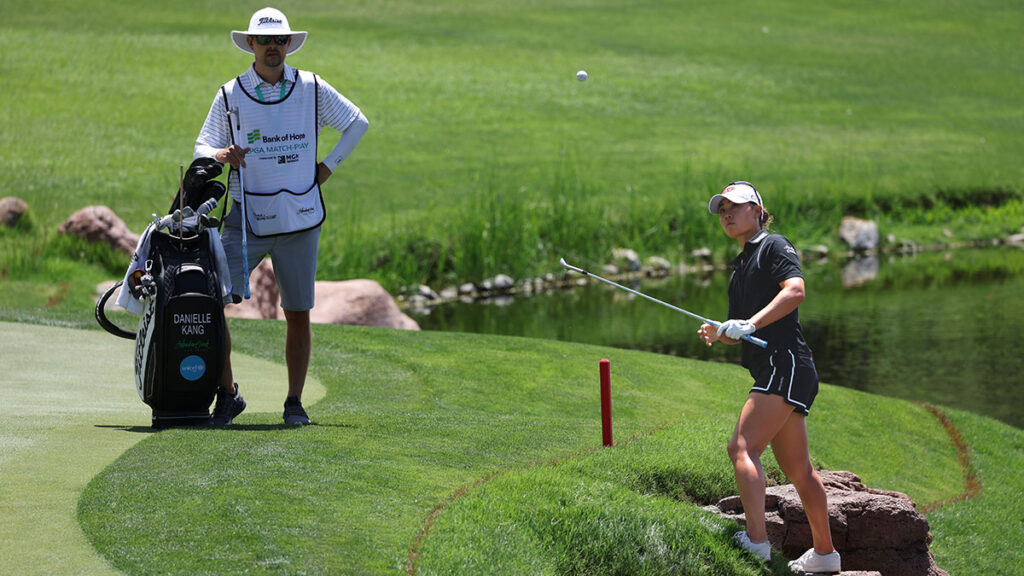
Best Scrambler: Danielle Kang
She might put herself in some dicey situations, but never count Danielle Kang out of a hole. Dozens of LPGA players and several swing coaches on tour agree that she has an amazing knack for getting up and down. One of Kang’s secrets is that she actually misses greens on purpose during practice rounds to get more comfortable trying to save par. It also doesn’t hurt that she has ranked no lower than fifth on tour in putting average the past three years.
Kang says her coach, Butch Harmon, has advised her to bump-and-run the ball whenever possible, because it’s such a high-percentage play. However, she can pull off virtually any shot around the greens because her quality of contact is so good. She’s leaving wedge shots in the five-foot range from the hole, says noted short-game coach Gareth Raflewski, and that leads to a conversion rate of about 90 percent. If her shots were instead stopping about 10 feet away, the rate drops to 40 percent.
“The wedge feels like an extension of my arm,” Kang says of her touch. “When I know how the club’s bounce is going to react through the grass, that’s all I’m looking for to get the best feel for the shot in front of me.”
To improve your contact like Kang, “stand no more than a foot from the ball,” Raflewski says. “This gets your club’s shaft more vertical, promoting solid chips and distance control.”
Honourable mentions: Carlota Ciganda, Patty Tavatanakit, Ruoning Yin
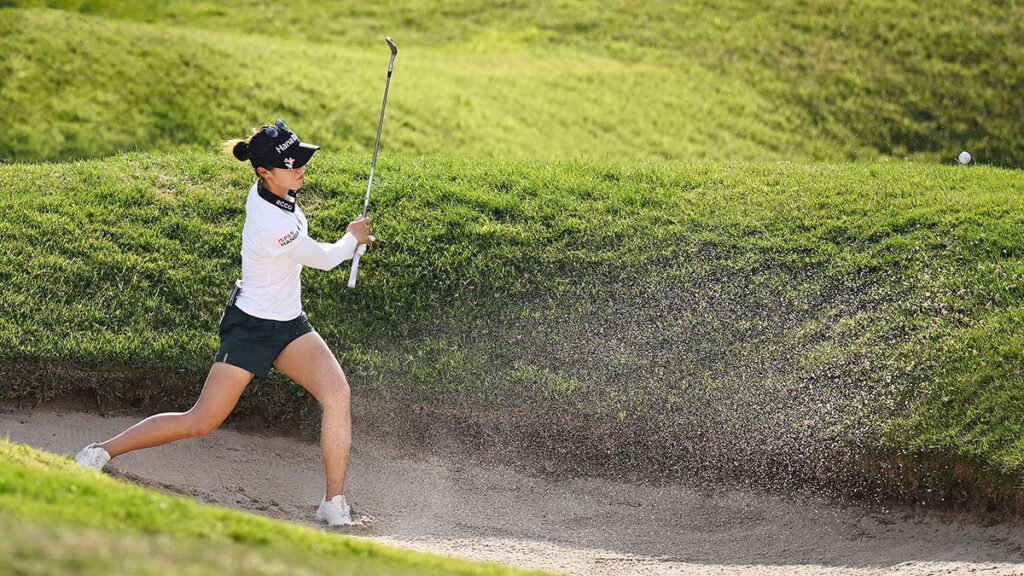
Best Bunker Player: Lydia Ko
Lydia Ko finished first, third and fourth on the LPGA Tour in sand saves from 2020-2022 and
was top 15 again last season. Her formula for success begins at setup but includes a blend
of good technique and the right attitude: “I try to stay aggressive and use a lot of bounce in the bunker,” Ko says, referring to the bulge on the back side of a wedge that helps skim the clubhead through the sand.
Ko says her setup is key: “I always put my weight on the lead side. From there I can be super-aggressive with my swing into the sand.” She picked up this technique from her former coach Sean Foley. “He described it as insurance to be as aggressive as I can,” she says. “Then I just feel like my clubhead is moving past my hands, and the bounce lets the club splash the ball out with some sand.”
One of her favourite ways to practise in bunkers is by using this simple drill: draw a line about an inch behind a ball in the bunker. Hit a bunker shot trying to enter the sand as close to the line as possible. Keep repeating this over and over, trying to hit the line but also making swings that are less and less restrictive. Let it go.
She says you also can use the line to determine if you’re delivering the club consistently in the same spot. That accuracy is crucial to getting a predictable result from the sand, including height and spin.
Honourable mentions: Ashleigh Buhai, So Yeon Ryu
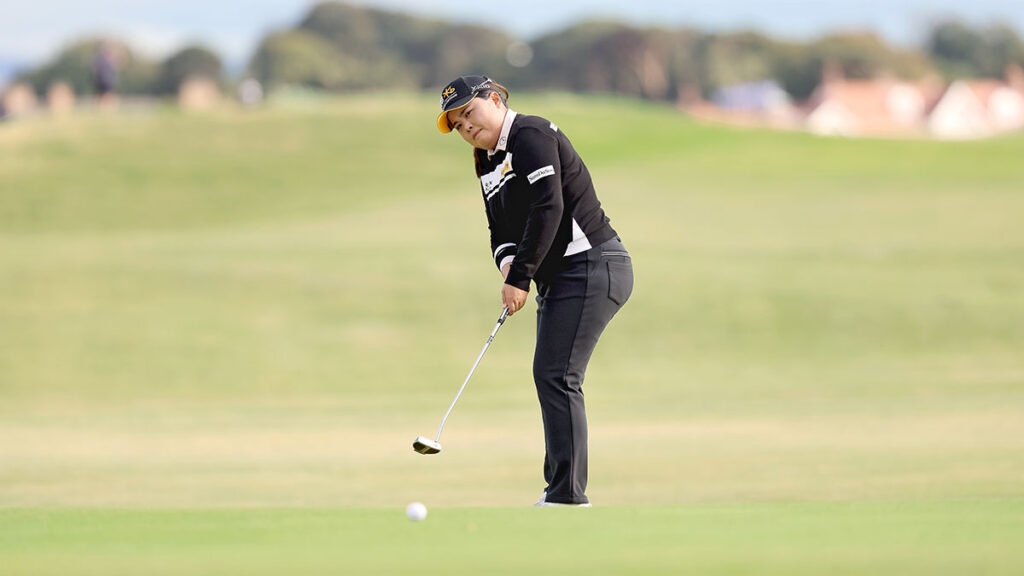
Best Putter: Inbee Park
Although she’s on maternity leave from the LPGA Tour, it would be tough not to call Inbee Park the best putter in women’s golf. She’s often considered one of the best of all time. Before taking her break, there was a stint on tour in which she was making nearly half of her putts in the 10-foot to 15-foot range (49.4 percent). The PGA Tour average is 31 percent.
“When I stand over it, when I feel confident with the line, I feel like even if this misses, it’s probably very obvious that everyone misses this length of putt. That kind of no-pressure mindset helps,” she says.
But it’s not just mindset, says short-game coach Gareth Raflewski: “If you watch the way the ball rolls into the hole when she putts, the ball doesn’t smash against the back of the hole or lip in. It’s always the right speed.
“We call it capture speed, which basically measures the size of the hole at the speed the ball is travelling towards it. The hole is 4.25 inches wide, so if the ball were to travel and get to the hole with zero speed, the full size of the cup would be utilised. But if the ball were travelling with one foot of extra speed, the hole in effect shrinks to 2.7 inches wide. For two feet of speed, it shrinks to 1.9 inches wide. What this means is that her distance control is so good, most of her second putts are within a foot.”
Honourable mentions: Ashleigh Buhai, Yaeeun Hong, Danielle Kang, Leona Maguire
Getty images: lee: dylan buell; ciganda: angel martinez; ko: stuart franklin; park: charlie crowhurst
